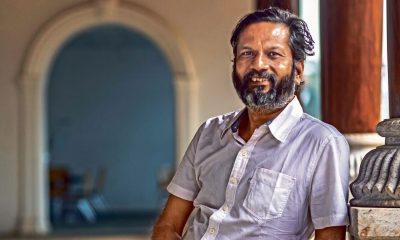

Technology
To improve cybersecurity, first shed overconfidence – Crypto News
Barely a week after the government declared the Bharat National Cyber Security Exercise 2023 a grand success, personal data of 815 million Indians, including Aadhaar numbers, phone numbers and addresses, started being hawked on the black web.
Cybersecurity is different from other areas such as, say, tourism promotion: mere enthusiasm isn’t sufficient. What’s needed is an effective strategy, policy, regulation, technical standards, enforcement agencies, continuous training, user vigilance, and investment in quality education.
Earlier this year the US government released new thinking around cybersecurity regulation, in which the government would place some security obligations on private companies that provide much of the network and storage infrastructure, and state agencies would proactively seek to deter and disrupt bad actors in cyberspace. The US has also proposed a Cyber Trust Mark, on the lines of star ratings for energy efficiency, that would replace the existing system of self-certification for the expanding array of connected devices. Of course, these trust tags should include their expiry date upfront, because what is secure today may not be tomorrow.
India also has a national cybersecurity strategy in the works. One hopes the draft strategy will be opened up for public comment and improvement.
Cybersecurity is a dynamic field. A cursory survey of the website of the Indian Computer Emergency Response Team (CERT-In) reveals a diverse range of current and potential threats emanating from devices, apps and web spaces, including those used for storage in the cloud. One thing is fairly clear. Apps need to be updated when the operating system changes. This has many implications, one of which is undermining the Competition Commission’s call for a laissez-faire approach in which external forks are tolerated in mobile operating systems, particularly in Google’s Android. Operating systems should ideally retain systemic integrity, and their makers stripped of any excuse for failing to insulate them from bad actors.
India is proud of its digital public infrastructure, and legitimately so. But it is also a source of vulnerability. Estonia, one of the earliest champions of digitising governance, found its state-owned and operated servers being hacked, and switched to Amazon Web Services. India has more robust technological and engineering capabilities, and can afford to host its crucial digital public infrastructure on state-owned or quasi-state-owned and operated servers. The depository accounts in which much of corporate ownership and wealth are stored, the Goods and Services Tax Network, the National Payment Gateway and much else operate in this manner. If these are disrupted by cybercriminals, the Indian economy would be brought to its knees.
The latest data breach reportedly emanated from the Ministry of Health and Family Welfare. All public databases should adopt the gold standard in cybersecurity. Should data be kept in a single centralised database or are decentralised databases more secure? Well, the Ministry of Health and Family Welfare’s database is an example of decentralisation. How many layers of clearance are required to access critical information via multi-factor authentication? What kind of training do authorised personnel require to ensure that personal sloppiness does not compromise data security?
It has been reported that Microsoft has been working with the government of Ukraine to ward off cyber attacks from Russia. Could Russia have similar protection for its networks from Microsoft and other large American tech giants? Could India have this, on a continuous and reliable basis, beyond the vagaries of petty politicking in the US Congress?
India does not need to reinvent the wheel on every matter of cybersecurity. But it must mobilise sufficient expertise as currency in global negotiations to ensure we get a fair deal. That means investing in quality education, from school to doctoral programmes. If every computer engineering student, on graduation, seeks a place in the job market, leaving only the rejects to pursue higher education, how will India develop the expertise it needs? If public-sector salaries cannot compete with private-sector munificence, especially at senior levels, how can we incentivise talented youth to work in key state agencies? How can we equip our investigative agencies with the knowledge and capability to effectively investigate cybercrime?
Adding artificial intelligence to this mix would increase technological complexity, but leave the basic challenges and the policy framework for addressing them more or less unchanged.
Obviously, there are more questions than ready answers in this realm of vital personal and national security. But these must be asked, and concerted efforts made to find viable answers. The first task is to rid the digital ecosystem of overconfidence that everything is under control.
-
Cryptocurrency1 week ago
XRP News: Ripple Unveils ‘Ripple Prime’ After Closing $1.25B Hidden Road Deal – Crypto News
-

 Blockchain1 week ago
Blockchain1 week agoAfrica Countries Pass Crypto Laws to Attract Industry – Crypto News
-

 De-fi1 week ago
De-fi1 week agoAster Rallies on ‘Rocket Launch’ Incentives Campaign – Crypto News
-

 Cryptocurrency1 week ago
Cryptocurrency1 week agoTrump plans to pick Michael Selig to lead CFTC: Report – Crypto News
-

 Blockchain1 week ago
Blockchain1 week agoISM Data Hints Bitcoin Cycle Could Last Longer Than Usual – Crypto News
-

 Blockchain1 week ago
Blockchain1 week agoEthereum Rebounds From Bull Market Support: Can It Conquer The ‘Golden Pocket’ Next? – Crypto News
-
others1 week ago
JPY soft and underperforming G10 in quiet trade – Scotiabank – Crypto News
-

 De-fi7 days ago
De-fi7 days agoNearly Half of US Retail Crypto Holders Haven’t Earned Yield: MoreMarkets – Crypto News
-

 Cryptocurrency1 week ago
Cryptocurrency1 week agoDOGE to $0.33 in Sight? Dogecoin Must Defend This Key Level First – Crypto News
-
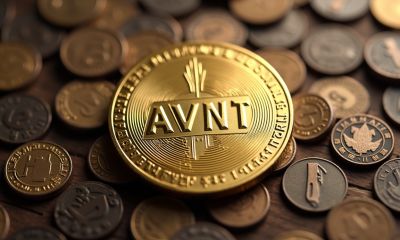
 Cryptocurrency1 week ago
Cryptocurrency1 week agoWhat next for Avantis price after the 73% recovery? – Crypto News
-

 Technology1 week ago
Technology1 week agoNothing OS 4.0 Beta introduces pre-installed apps to Phone (3a) series: Co-founder Akis Evangelidis explains the update – Crypto News
-

 Blockchain6 days ago
Blockchain6 days agoXRP Price Gains Traction — Buyers Pile In Ahead Of Key Technical Breakout – Crypto News
-

 Technology4 days ago
Technology4 days agoSam Altman says OpenAI is developing a ‘legitimate AI researcher’ by 2028 that can discover new science on its own – Crypto News
-
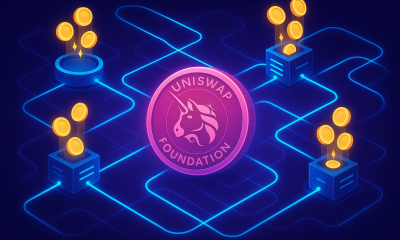
 Technology1 week ago
Technology1 week agoUniswap Foundation (UNI) awards Brevis $9M grant to accelerate V4 adoption – Crypto News
-

 Technology1 week ago
Technology1 week agoFrom Studio smoke to golden hour: How to create stunning AI portraits with Google Gemini – 16 viral prompts – Crypto News
-

 Blockchain1 week ago
Blockchain1 week agoBinance Stablecoin Outflow On A Steady Rise — What This Means For The Market – Crypto News
-

 De-fi1 week ago
De-fi1 week agoHYPE Jumps 10% as Robinhood Announces Spot Listing – Crypto News
-
others7 days ago
Platinum price recovers from setback – Commerzbank – Crypto News
-

 Cryptocurrency6 days ago
Cryptocurrency6 days agoWestern Union eyes stablecoin rails in pursuit of a ‘super app’ vision – Crypto News
-
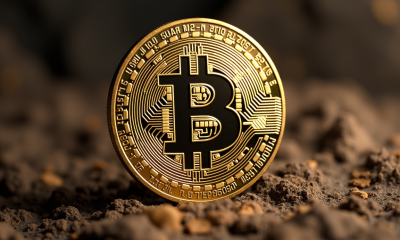
 Cryptocurrency1 week ago
Cryptocurrency1 week agoCrypto update: Bitcoin and Ethereum are stable as market’s focus shifts to US inflation data – Crypto News
-

 De-fi1 week ago
De-fi1 week agoSolana DEX Meteora Launches Native MET Token – Crypto News
-

 Technology1 week ago
Technology1 week agoGoogle and Apple face extra UK scrutiny over strategic role in mobile platforms – Crypto News
-
Business1 week ago
White House Crypto Czar Backs Michael Selig as ‘Excellent Choice’ To Lead CFTC – Crypto News
-
Business1 week ago
Breaking: Trump To Meet China’s President On October 30, Bitcoin Bounces – Crypto News
-

 Cryptocurrency7 days ago
Cryptocurrency7 days agoUSDJPY Forecast: The Dollar’s Winning Streak Why New Highs Could Be At Hand – Crypto News
-

 Cryptocurrency1 week ago
Cryptocurrency1 week agoLedger Nano Gen5 feels like Flex for less – Crypto News
-
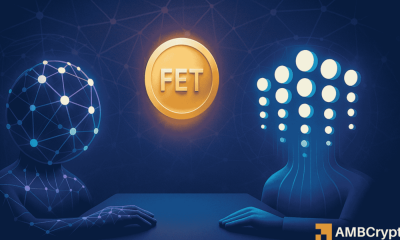
 Cryptocurrency1 week ago
Cryptocurrency1 week agoFetch.ai and Ocean Protocol move toward resolving $120M FET dispute – Crypto News
-

 Technology1 week ago
Technology1 week agoOpenAI announces major Sora update: Editing, trending cameos, and Android launch on the way – Crypto News
-

 Metaverse1 week ago
Metaverse1 week agoGemini in Gmail automates meeting schedules effortlessly – Crypto News
-

 Technology1 week ago
Technology1 week agoMint Explainer | India’s draft AI rules and how they could affect creators, social media platforms – Crypto News
-

 Blockchain1 week ago
Blockchain1 week agoEntire Startup Lifecycle to Move Onchain – Crypto News
-

 Cryptocurrency1 week ago
Cryptocurrency1 week agoNEAR’s inflation reduction vote fails pass threshold, but it may still be implemented – Crypto News
-

 Blockchain7 days ago
Blockchain7 days agoXRP/BTC Retests 6-Year Breakout Trendline, Analyst Calls For Decoupling – Crypto News
-
others7 days ago
Indian Court Declares XRP as Property in WazirX Hack Case – Crypto News
-

 Technology7 days ago
Technology7 days agoSurvival instinct? New study says some leading AI models won’t let themselves be shut down – Crypto News
-
others6 days ago
Is Changpeng “CZ” Zhao Returning To Binance? Probably Not – Crypto News
-

 Technology1 week ago
Technology1 week agoSolana’s RWA market surpasses $700M all-time high as adoption accelerates – Crypto News
-

 Cryptocurrency1 week ago
Cryptocurrency1 week agoJito’s JTO token rises on a16z’s $50 million investment in Solana staking protocol – Crypto News
-
Technology1 week ago
Dogecoin Price Crash Looms as Flag, Death Cross, Falling DOGE ETF Inflows Coincide – Crypto News
-

 Blockchain1 week ago
Blockchain1 week agoBitcoin Whale From 2009 Moves Coins After 14 Years Asleep – Crypto News
-
Technology1 week ago
Can Hype Price Hit $50 After Robinhood Listing? – Crypto News
-
Business1 week ago
HBAR Price Targets 50% Jump as Hedera Unleashes Massive Staking Move – Crypto News
-
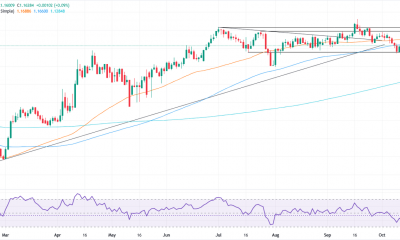
 others1 week ago
others1 week agoEUR/USD hovers at 1.1600 as muted CPI data fails to alter Fed stance – Crypto News
-

 Cryptocurrency1 week ago
Cryptocurrency1 week agoBitcoin’s institutional surge widens trillion-dollar gap with altcoins – Crypto News
-
Business1 week ago
PEPE Coin Price Prediction as Weekly Outflows Hit $17M – Is Rebound Ahead? – Crypto News
-

 Cryptocurrency1 week ago
Cryptocurrency1 week agoHYPE Breaks Out After Robinhood Listing and S-1 Filing: What’s Next? – Crypto News
-
Technology1 week ago
Analyst Eyes Key Support Retest Before a Rebound for Ethereum Price Amid $93M ETF Outflows and BlackRock Dump – Crypto News
-
Business1 week ago
Ripple Explores New XRP Use Cases as Brad Garlinghouse Reaffirms Token’s ‘Central’ Role – Crypto News
-
others1 week ago
Bitcoin Price Eyes $120K Ahead of FED’s 98.3% Likelihood to Cut Rates – Crypto News
-
others1 week ago
Tether’s Stablecoin 1.0 Era Is Over – Now the Industry Needs 2.0 – Crypto News



